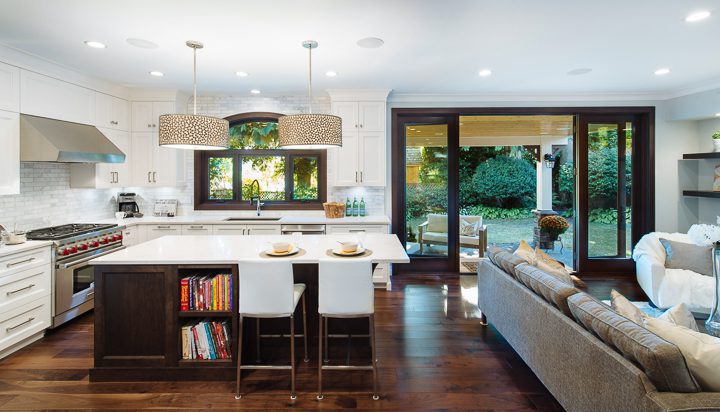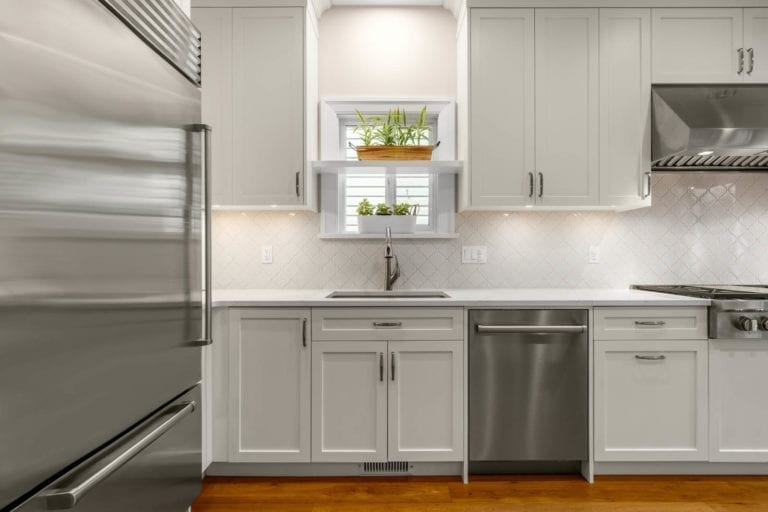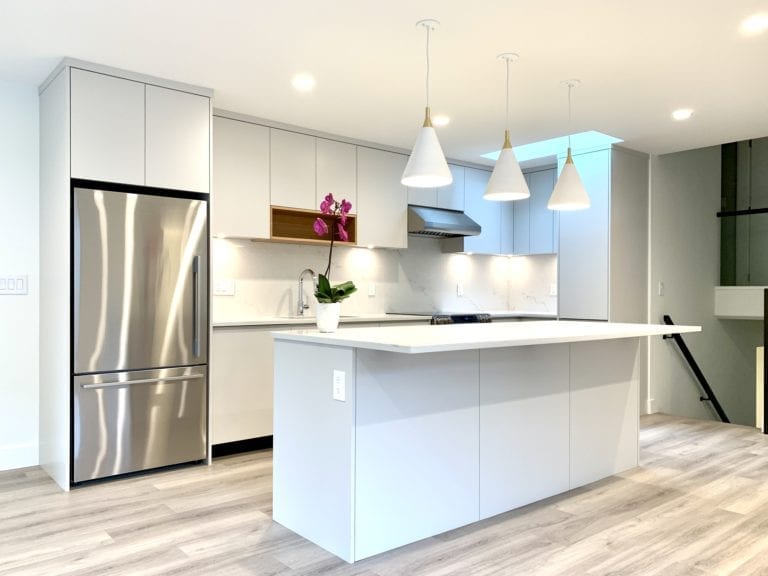We love designing and building homes for our clients. Right now, we’ve got some amazing projects in design, ranging from a small, basic rancher on an acreage in Maple Ridge to a family oriented Passive House in Delta, and from a stunning luxury home in Richmond to some beautiful family homes in Vancouver, Surrey and Coquitlam.
Building a home is fun, rewarding and exciting, but is a very significant financial decision, and one that we don’t take lightly. One of the biggest hurdles is finding out what a reasonable ballpark investment will be, for each home, just to know if it’s worth pursuing or not!
We hear so many horror stories of families over-extending themselves financially, and signing on to build a home they couldn’t afford, and having a builder that didn’t provide guidance or insight as to what the expected costs should be.
So, how should you get ahead of this, and find out what your dream home will cost?
First of all, there are some factors that will directly affect the cost of your build. Some of these factors are:
- Size
- Quality
- Complexity (mechanical/structural/geotechnical, site-specific challenges, etc.)
- Luxury
SIZE
The size of your home matters. The bigger the house, the more concrete, lumber, drywall, roofing, finishes and labour hours will be needed to build it. Interestingly, the while the bigger the house, the more expensive it will cost, the actual “cost per square foot” to build a very large house will be lower than a small house. A small house still needs a heat source, a kitchen, 3 bathrooms, one front door, one water connection, one driveway, one hot water heater, etc. With a small house, while the OVERALL cost will be lower than a similar designed house that is larger, the COST PER SQUARE FOOT will go up. You’ll be compacting all of the expensive aspects of a home into a smaller space, without the benefit of the big, cheap spaces, such as living rooms, bedrooms, and sitting rooms. So, with a small house, you’re going to compress the expenses into less space. You’ll save money over a larger house, but know that the cost savings aren’t linear.
QUALITY
We don’t build low quality homes, so we’re not going to be helpful if you’re trying to figure out the absolute cheapest way to build. Our mantra is “it doesn’t need to be luxury, but it must be quality”. How do we define quality?
- Durable
- High performing
- Comfortable.
A durable house will stand the test of time. An example could be something as simple as the roofing product. We don’t want to use the cheapest roofing product, that will only last 8-10 years. We would strive for a quality product that will last longer. It doesn’t need to be fancy! Many quality asphalt/duroid roofs will last 25+ years a only a marginal cost increase. Another example is flooring. We don’t need hand-scraped hardwood to make the house durable, but installing cheap laminate is a poor investment. Sure, it’s cheap. But it won’t last. We will always start with a quality vinyl plank floor. Again, a slight increase above the “cheap stuff” , but a quality vinyl plank will stand the test of time.
A high performing house is energy efficient. It will be well insulated, have mechanical systems that minimize the amount of gas and electricity required to heat (and cool). Yes, this will be an added cost, but in the long run, it will save you money, and will reduce your environmental impact.
A comfortable house is one that you WANT to spend time in. Quiet, cozy, easy to use. For example, when we install the main plumbing drain stack from the basement, through the main floor, to the top floor, we opt to use a cast iron stack, that we insulate. This is slightly more than plastic ABS piping, but it’s going to be ultra quiet, and when someone flushes the toilet upstairs while you’re in the kitchen of your new home, you won’t hear the rushing waterfall of toilet water flowing through your kitchen. We also will push to acoustically insulate interior walls. If one kid is up crying at night, keeping the other kids sleeping is going to be a very worthwhile investment!
These small changes all cost money, but are what we believe are worthwhile investments.
COMPLEXITY
If you want to save money building a home, keep the design structurally basic. If you want custom glass walls, cantilevered steel beams and elaborate architectural features, this will cost you much more money than a more “traditional” home design.
The same goes will mechanical systems. A multi-zoned hydronic system with separate air conditioning and and HRV, while comfortable and efficient, will cost more than a high efficiency heat pump and air handler, or high efficiency furnace with A/C.
In the same line of thought that a “complex house will cost more to build” , so too is there a direct relationship between the complexity of your building lot/property and the cost.
Are you on a peat bog? You’ll need to budget well over $150k more than a traditional build, for the piles. Are you on a cliff, near a watercourse, or on a remote location? All of these factors will affect the cost of your build.
Municipalities also affect the cost. The City of Vancouver, for example, has it’s own stringent building code. This building code ensures that homes are more efficient, but will cost more than if you built the same home in Burnaby.
LUXURY
We focus on quality first, then luxury. If your budget allows for a high quality build, and some luxurious features added in, that’s great! This, though, is where prices can really escalate. You can buy a light fixture for your dining room for $500 or $15,000. We’ve installed fireplaces that have cost anywhere from $2,000 to $50,000! Both will sufficiently heat a space and be comfortable, but one of them is large, luxurious, custom built… and far more expensive.
WHICH BUILDER IS CHEAPER?
Now that we’ve outlined the factors that affect the price of your build, you’re going to want to know what your house will cost!
First of all, it’s important to know that assuming you hire a professional, reputable, honest, quality-focused custom home builder, you’ll likely pay around the same price, regardless of who you use. We all pay nearly the same for lumber, concrete, drywall, etc. We all use similarly priced trades and suppliers. We all buy the finishes and products from one of a few suppliers, and charge similar markups, hourly rates and fees. Yes, there will be differences, but when the dust settles, the costs will be close. Look for a builder whose process you align with, whose people you trust, and who’s commitments align with what you value. If you see a house that they have built, ask what that specific house would cost to build, in 2022. Ask if that included landscaping, appliances, permits, design, engineering, demolition of the existing home, etc. Getting direct comparable information like this can be really helpful.
ROUGH BALLPARK PRICING
Let’s assume you want a “quality” home (not a luxury home) , architecturally straight forward, on a standard lot, and that the house would be a size that’s pretty common. Let’s say 3500 square feet. A high quality, well-built home, that’s functional and beautiful, but not opulent.
These homes will likely start in the mid-high $300’s per square foot, for construction costs.
3500 square feet at $350-$400 per square foot will bring you to around $1.2M-$1.4M for your construction costs.
Design/permits/pre-construction would be separate from this. Often times, appliances, landscaping and any existing home demolition would be additional as well.
If you wanted to make the home more luxurious, adding some beautiful, high-end features, you’ll quickly jump well above the $400 per square foot range, and can easily jump into $600+ per square foot territory.
WHEN WILL I KNOW EXACTLY WHAT MY HOME WILL COST?
The final price of the home will be determined by what contract you sign. If you sign a cost-plus, or management-fee structure, you won’t know what your total cost is, until AFTER the home is built, and you’re moved in.
If you sign a fixed-price contract, you’ll know the final price BEFORE construction starts. In order to sign the fixed-price contract, though, your design must be FULLY completed, and every cost budgeted prior to starting your build.
(disclosure: we offer a fully integrated design/build model, providing fixed-price and schedule peace of mind for our builds. We also have offered cost-plus, on occasion. Since we’re actually willing to commit to the fixed price, we know that we’ll be right on budget, whether it’s cost-plus or fixed-price.)
So, if you’re wanting to know exactly what your home will cost, you’ll need to know every element of your home’s design, and all costs associated, before you have this cost clarity. We think that this is a worthwhile time investment to figure this all out ahead of time!
We’ve been working with families to design and build their dream homes for more than 40 years. During this time, we’ve learned that the time and effort invested into a thorough, comprehensive and proven design/build process has always led to the best results for our clients. Each client is paired with one of our designers and one of our project managers, and are guided through the design and construction phases seamlessly. By the time we are ready to start construction, our clients know what they’re getting, what it’s going to cost, and how long it’s going to take!



